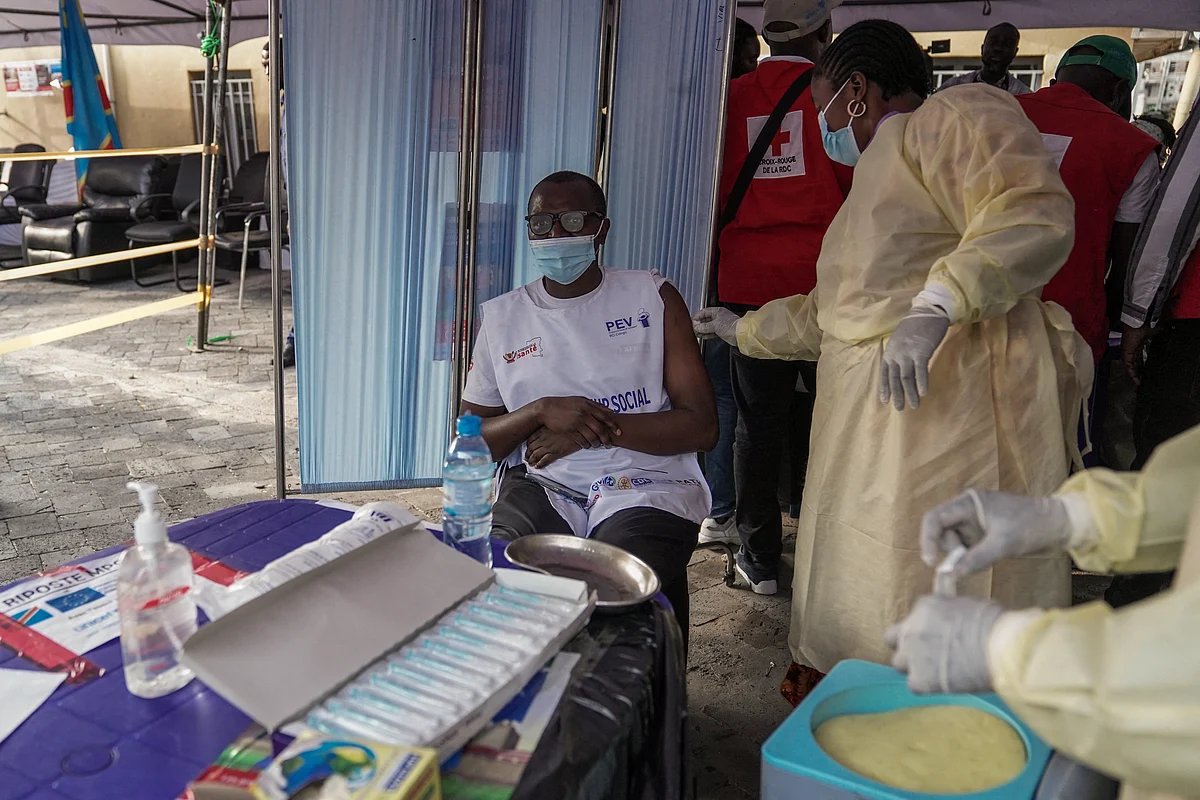
Mpox No Longer A Global Public Health Emergency, WHO Chief Declares
Mpox no longer represents a global public health emergency, the World Health Organisation said Friday, following a sustained decline in cases and deaths in Democratic Republic of Congo and other affected countries.
"Of course, lifting the emergency declaration does not mean the threat is over, nor that our response will stop," WHO chief Tedros Adhanom Ghebreyesus told a press conference after deciding to lift the UN health agency's top emergency status, put in place more than a year ago.
Recommended For YouStay up to date with the latest news. Follow KT on WhatsApp Channels.
What is a public health emergency?A "public health emergency of international concern" or PHEIC is WHO's highest form of alert. It is announced when diseases are spreading in new or unusual ways, and is aimed at galvanising international co-operation and funding to tackle an outbreak.
Symptoms of mpoxSymptoms of the disease usually begin within a week of exposure, however, they can also start start 1–21 days later, WHO has said.
The authority added that symptoms last 2–4 weeks but may last longer in someone with a weakened immune system.
Here are some common symptoms:
- A rash beginning as a flat sore which later develops into a blister filled with liquid which can be itchy or painful
Fever Sore throat
Headache Muscle aches
Back pain Low energy
Swollen lymph nodes
Mpox can be transmitted among people through direct contact with infectious skin or lesions. This includes talking, breathing, touching and intimacy. Respiratory droplets or short-range aerosols from close contact can also transmit the disease.
It can also be contracted from contaminated objects such as clothing or linens, through sharps injuries in health care, or in community setting such as tattoo parlours.
PreventionMpox infection can be prevented by receiving a vaccine. The vaccine should be given within 4 days of contact with someone who has mpox (or within up to 14 days if there are no symptoms).
During an outbreak, those at higher risk of contracting the disease, such as healthcare workers, are recommended to get vaccinated first, the WHO says.

Legal Disclaimer:
MENAFN provides the
information “as is” without warranty of any kind. We do not accept
any responsibility or liability for the accuracy, content, images,
videos, licenses, completeness, legality, or reliability of the information
contained in this article. If you have any complaints or copyright
issues related to this article, kindly contact the provider above.
Most popular stories
Market Research

- Tappalpha's Flagship ETF, TSPY, Surpasses $100 Million In AUM
- Nigel Farage To Headline At UK's Flagship Web3 Conference Zebu Live 2025
- PU Prime Launches Halloween Giveaway: Iphones, Watches & Cash Await
- Cregis And Sumsub Host Web3 Compliance And Trust Summit In Singapore
- Luminadata Unveils GAAP & SOX-Trained AI Agents Achieving 99.8% Reconciliation Accuracy
- BTCC Exchange Announces Triple Global Workforce Expansion At TOKEN2049 Singapore To Power Web3 Evolution



















Comments
No comment